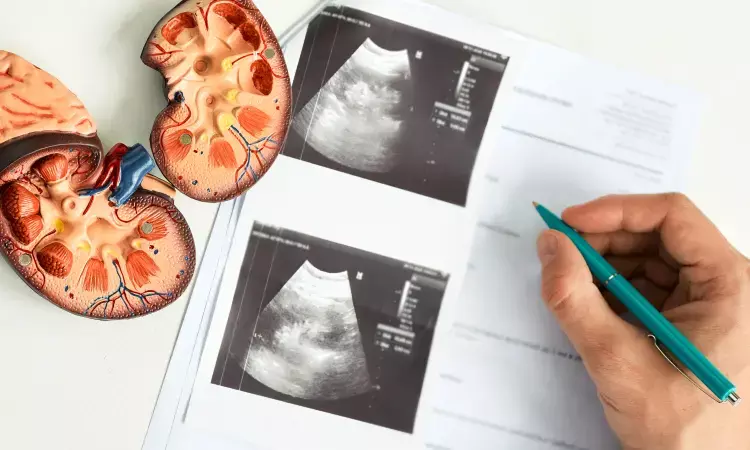- Home
- Medical news & Guidelines
- Anesthesiology
- Cardiology and CTVS
- Critical Care
- Dentistry
- Dermatology
- Diabetes and Endocrinology
- ENT
- Gastroenterology
- Medicine
- Nephrology
- Neurology
- Obstretics-Gynaecology
- Oncology
- Ophthalmology
- Orthopaedics
- Pediatrics-Neonatology
- Psychiatry
- Pulmonology
- Radiology
- Surgery
- Urology
- Laboratory Medicine
- Diet
- Nursing
- Paramedical
- Physiotherapy
- Health news
- Fact Check
- Bone Health Fact Check
- Brain Health Fact Check
- Cancer Related Fact Check
- Child Care Fact Check
- Dental and oral health fact check
- Diabetes and metabolic health fact check
- Diet and Nutrition Fact Check
- Eye and ENT Care Fact Check
- Fitness fact check
- Gut health fact check
- Heart health fact check
- Kidney health fact check
- Medical education fact check
- Men's health fact check
- Respiratory fact check
- Skin and hair care fact check
- Vaccine and Immunization fact check
- Women's health fact check
- AYUSH
- State News
- Andaman and Nicobar Islands
- Andhra Pradesh
- Arunachal Pradesh
- Assam
- Bihar
- Chandigarh
- Chattisgarh
- Dadra and Nagar Haveli
- Daman and Diu
- Delhi
- Goa
- Gujarat
- Haryana
- Himachal Pradesh
- Jammu & Kashmir
- Jharkhand
- Karnataka
- Kerala
- Ladakh
- Lakshadweep
- Madhya Pradesh
- Maharashtra
- Manipur
- Meghalaya
- Mizoram
- Nagaland
- Odisha
- Puducherry
- Punjab
- Rajasthan
- Sikkim
- Tamil Nadu
- Telangana
- Tripura
- Uttar Pradesh
- Uttrakhand
- West Bengal
- Medical Education
- Industry
CAD testing before kidney transplant does not reduce death rate and early MI: JAMA

California: An original investigation published in JAMA Internal Medicine has concluded that pretransplant Coronary Heart Disease (CHD) testing is not associated with reduced early posttransplant death or acute Myocardial Infarction (MI) in kidney transplantation.
The researchers from the Division of Nephrology at Stanford University School of Medicine have challenged the ubiquity of CHD testing before kidney transplant, which should be confirmed in interventional studies.
CHD testing candidates before transplant (in candidates of asymptomatic kidney transplant) is widespread. Various professional societies endorse this. However, there needs to be more data on how it is associated with perioperative outcomes.
Cheng et al. and colleagues did a study to answer the question, Does CHD testing before kidney transplant reduces early posttransplant death or MI?
The study points are:
- The study included 79334 adults, first-time kidney transplant recipients (January 2000-December 2014), in the US Renal Data System with at least one year of Medicare enrollment before and after the transplant.
- In the study, instrumental variable (IV) analysis was used.
- The exposure included nonurgent invasive or noninvasive CHD testing during the 12 months preceding the kidney transplant.
- The researchers measured the composite of death or acute MI within 30 days as the primary outcome.
- The participants were 38 % women, 21% Black and 61% White individuals with a mean age of 56.
- The primary outcome occurred in 4604 patients.
- The percentage of death and acute MI was 2.6% and 2.9%.
- The CHD testing rate was 56% among most test-intensive transplant programs and 24% in patients in the least test-intensive transplant program. (2012-2014)
- In the main IV analysis, CHD testing was not associated with a change in primary outcome rate, having a rate difference of 1.9%.
- The results were similar across study periods, except for 2000 -2003, during which CHD testing was associated with a higher event rate having a rate difference, of 6.8%.
To conclude, CHD testing before a kidney transplant may not be tied to reduced adverse outcomes early after the transplant.
Further reading:
Cheng XS, et al. Association of Pretransplant Coronary Heart Disease Testing With Early Kidney Transplant Outcomes. JAMA Intern Med. doi:10.1001/jamainternmed.2022.6069
BDS, MDS in Periodontics and Implantology
Dr. Aditi Yadav is a BDS, MDS in Periodontics and Implantology. She has a clinical experience of 5 years as a laser dental surgeon. She also has a Diploma in clinical research and pharmacovigilance and is a Certified data scientist. She is currently working as a content developer in e-health services. Dr. Yadav has a keen interest in Medical Journalism and is actively involved in Medical Research writing.
Dr Kamal Kant Kohli-MBBS, DTCD- a chest specialist with more than 30 years of practice and a flair for writing clinical articles, Dr Kamal Kant Kohli joined Medical Dialogues as a Chief Editor of Medical News. Besides writing articles, as an editor, he proofreads and verifies all the medical content published on Medical Dialogues including those coming from journals, studies,medical conferences,guidelines etc. Email: drkohli@medicaldialogues.in. Contact no. 011-43720751


